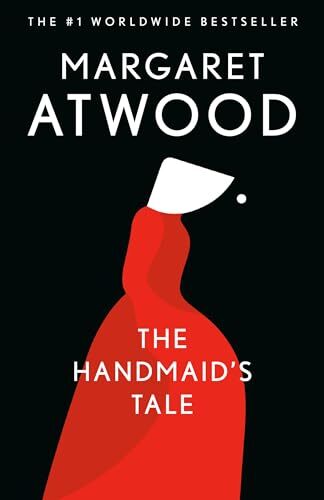
The more books I read, the more I realize a single star rating is meaningless. What am I rating here? Whether I enjoyed the book? Whether I think it’s worth reading? Whether it’s well written? Whether it tells an important message? I have a different rating for each of these, and whittling it down to a single number doesn’t mean much.
The good
-
An effective, if not particularly subtle, way to explore the treatment and role of women in society. This is the story of a dystopian future where (a) due to pollution, radiation, and disease, the levels of infertility are reaching dire levels and (b) the US has been overthrown by a radical political group and turned into a theocratic and totalitarian state where women are stripped of virtually all rights—forbidden to own property, handle money, and read or write—and divided into different classes: Commander’s Wives (the highest class, allowed to marry the ruling class of men, known as “Commanders”), Marthas (cooks and maids), Handmaids (forcibly assigned to bear children for the commanders), Aunts (responsible for training and disciplining the Handmaids), and Econowives (women married to lower class men).
-
Powerful, stark, unforgettable imagery: the enforced dress code for each class of women, with the Commanders’ Wives in blue, the Aunts in brown, the Handmaids in red, the Marthas in green, “Econowives” in stripes, and young and unmarried girls in white. The “ceremony” of having sex with the handmaid and wife. Forbidding handmaids to have their own names and forcing upon them the name of whichever commander they were assigned to at the time (Offred = of Fred). The armed guards, walls, and checkpoints. Bodies of publicly executed criminals hanging on hooks. The aristocracy. The secret brothels. It feels like a crazy mix of a Communist totalitarian state, a fundamentalist theocracy, and Victorian England.
-
The book forces you to consider whether this is a cautionary tale or more like historical fiction. Just about everything in this story has existed in previous societies, and some of it exists in some societies today: the treatment of women in the theocracies of the middle east; the polygamy in mormon societies; the rise of Christian fundamentalism in the US; the class-based societies of England and India; the strict control of personal freedoms in fascist Germany and communist USSR. This is not some far-fetched sci-fi tale, but something frighteningly close to reality.
The not so good
-
Every aspect of the story is depressing. There’s barely a shred of happiness or hope in any aspect of it. I understand the book is trying to send a not-so-subtle message, but I found it tough to pick it up each day, as I knew I’d be bludgeoned with another awful scene of rape, or hints of torture, or other form of despair.
-
The writing style is a bit frustrating. It consists of a series of loosely connected scenes that follow a handmaid assigned to a particular commander, but with constant jumps between the past and present. Combined with the dark theme, it can be a chore to read.
Overall
I must admit that I didn’t enjoy reading the story itself. But after I was done and had a chance to reflect on the ideas and imagery, I realized it had an impact on me. There’s a lot of important ideas here, and it’s worth the tough read to get to them.
